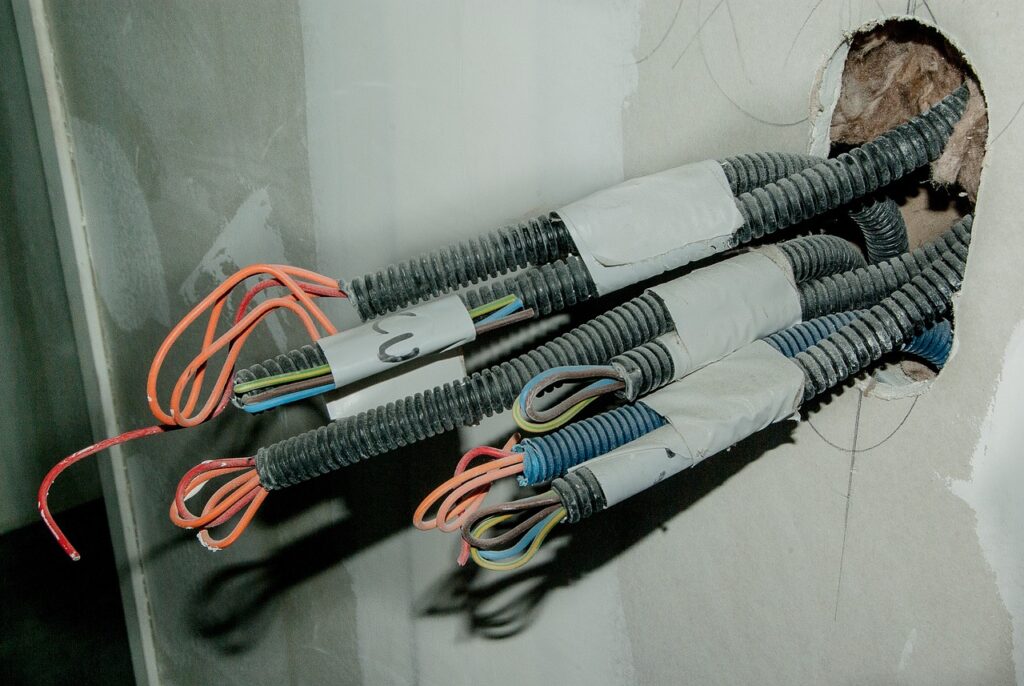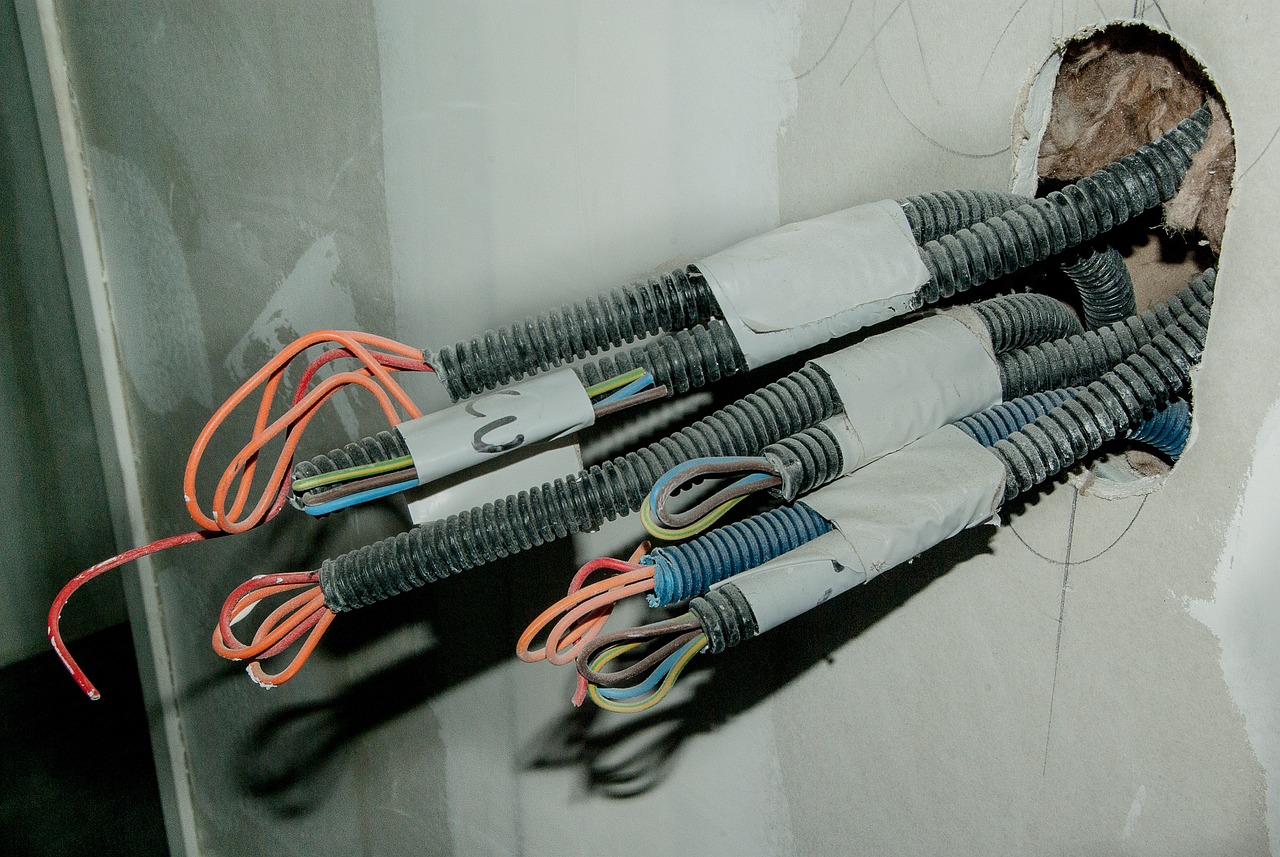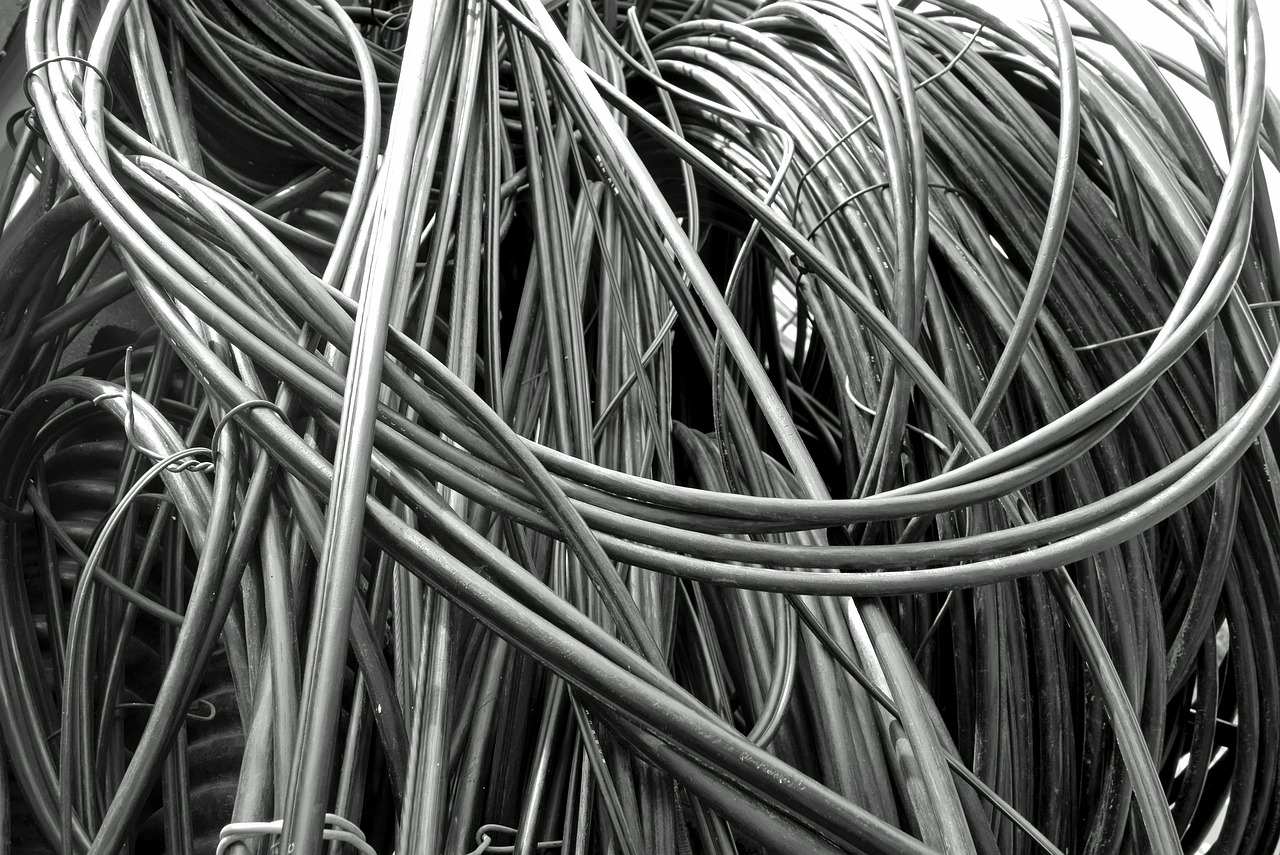Are you considering DIY rewiring for your home? While it may seem like a cost-effective solution, it’s important to understand the risks involved before taking on such a project. Electrical work can be dangerous and mistakes can lead to serious injury or even death.
Before starting any electrical work, it’s important to assess your knowledge and skills. Do you have a basic understanding of electrical systems and how they work? Do you know how to safely handle electrical wires and equipment? If you’re not confident in your abilities, it may be best to hire a professional electrician.
In this article, we’ll explore the risks and benefits of DIY rewiring and help you determine if it’s worth the risk.
Understanding the Risks of DIY Rewiring
Now, let’s talk about the risks you’re taking on if you decide to tackle DIY rewiring. Safety concerns should be your top priority since electrical hazards can cause serious injury or even death.
One of the main risks of DIY rewiring is not knowing how to properly handle electrical components. This can lead to electrical shock or starting a fire, which can cause significant property damage.
Another risk is not understanding the electrical system in your home. If you don’t know what you’re doing, you can easily overload circuits or create a short circuit, which can trip breakers or cause a power outage.
Additionally, if you don’t follow electrical codes and regulations, you may end up with a home that’s not up to code, which can result in fines or failed inspections if you try to sell your home.
Overall, the risks of DIY rewiring are significant, and it’s important to consider hiring a professional electrician to ensure your safety and the safety of your home.
Assessing Your Electrical Knowledge and Skills
You may be wondering if you have the necessary knowledge and skills to tackle an electrical project. It’s important to evaluate your own limitations before attempting any DIY rewiring.
Ask yourself if you have a basic understanding of electrical systems, including wiring, circuits, and safety precautions. If you’re unsure, it’s best to seek education and training before attempting any electrical work.
There are resources available for those who want to learn more about electrical systems. Online tutorials, books, and classes at community colleges or trade schools can help you gain the knowledge and skills necessary for DIY rewiring projects.
However, it’s important to note that even with education and training, there are still risks involved with DIY rewiring. It’s always best to consult with a licensed electrician before attempting any electrical work to ensure safety and proper functioning of your electrical system.
Obtaining the Right Tools and Materials
Equipping yourself with the right tools and materials is crucial for successfully completing any electrical project. Choosing the right wire type is essential as it’ll affect the safety and efficiency of your rewiring job.
Make sure to choose the appropriate gauge wire for the application and ensure that it’s rated for the voltage and amperage of the circuit. Using the wrong wire can cause overheating, sparking, and even fires.
Safety precautions when handling electrical tools should also be a top priority. Always wear protective gear such as gloves, safety glasses, and non-conductive footwear. Use tools with insulated handles and avoid using damaged or frayed cords.

Remember to turn off the power before starting any electrical work and test wires with a voltage tester before touching them. By taking these precautions and using the right tools and materials, you can minimize the risks and successfully tackle your rewiring project.
Knowing When to Call in a Professional
It’s important to recognize when it may be necessary to seek the assistance of a professional electrician for your home projects, as their expertise and experience can ensure a safe and efficient outcome.
While DIY rewiring can save you money, it can also pose serious risks to your safety if not done correctly. It’s crucial to know when to hire a professional to avoid any potential hazards.
One situation that requires the expertise of an electrician is when dealing with electrical safety measures. If you’re not familiar with electrical safety codes, you may unintentionally create a dangerous situation. A professional electrician can identify and correct any issues to ensure that your wiring is up to code and meets safety standards.
Remember, your safety and the safety of your family are essential, and it’s always better to be safe than sorry.
Weighing the Pros and Cons of DIY Rewiring
Deciding whether to tackle electrical projects on your own can save money but may also lead to potential hazards. One of the major benefits of DIY rewiring is the cost savings. Hiring a professional electrician can be expensive, and doing the work yourself can help you save a significant amount of money. Additionally, some people enjoy the sense of accomplishment and the feeling of taking on a DIY project.
However, it’s important to weigh the pros and cons before starting a DIY rewiring project. Safety concerns should be a top priority. Electrical work can be dangerous and mistakes can lead to serious injuries or even death. It’s crucial to have a solid understanding of electrical systems and safety protocols before attempting any rewiring project.
If you’re unsure about your ability to complete the project safely, it’s best to hire a professional electrician to avoid putting yourself and your family in danger.
Frequently Asked Questions
How can I know if my electrical system needs rewiring?
Do you wonder if your electrical system needs rewiring? Look for signs of outdated wiring, like flickering lights or blown fuses. If you’re unsure, it’s best to hire a professional electrician to assess the situation.
Can I rewire my entire house on my own or should I do it in parts?
Rewiring your entire house is a complex process that requires knowledge and experience. It’s recommended to hire professionals to ensure the job is done safely and efficiently. Don’t risk electrocution or fire hazards by attempting it yourself.
What are the common mistakes that people make when attempting DIY rewiring?
When attempting DIY rewiring, common errors include not turning off the power, using incorrect wire sizes, and improperly grounding wires. These mistakes can lead to electrical shock, fires, and other dangerous situations.
Are there any safety precautions I should take before starting the rewiring process?
Before starting any rewiring process, it’s essential to take safety precautions seriously. Make sure you have the necessary safety equipment, such as gloves, goggles, and a fire extinguisher nearby. Professional assistance is always recommended for complex electrical work.
How long does DIY rewiring usually take and what are the factors that affect the timeline?
When tackling DIY rewiring, the timeline can vary depending on the size of the project and your experience level. Factors affecting the timeline include the complexity of the wiring, accessibility of electrical components, and any unforeseen issues that may arise.
Conclusion
In conclusion, when it comes to DIY rewiring, the risks are high and shouldn’t be taken lightly. It’s important to assess your own knowledge and skills, as well as obtain the necessary tools and materials before attempting any electrical work.
Even with the proper preparation, there’s still a potential for danger, and it’s crucial to know when to call in a professional.
While DIY rewiring may seem like a cost-effective solution, it’s important to weigh the pros and cons before making a decision. In the end, the safety of yourself and your home should always be the top priority.
So before you pick up a wire cutter and start rewiring your home, take a moment to consider the potential risks and whether it’s truly worth the risk.



